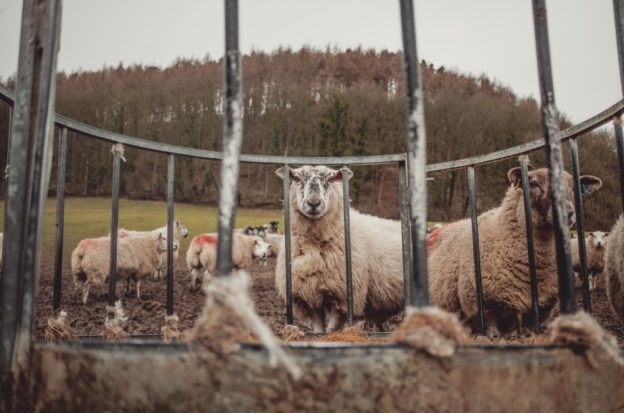Climate change can have a massive impact on worms. It can increase the risk, making it possible for them to thrive for longer on pastures. Plus, when it gets warmer, it can allow them to survive in areas where they would not previously. This is happening with Haemonchus contortus in the UK. As a result, farmers need to be aware of the risk and how to treat an outbreak effectively with wormer.
The worms
Haemonchus contortus is also known as Barber’s pole worms because the females have red striping, resembling the classic poles you can see at a barber shop. They can infect sheep, goats, and sometimes other ruminants.
In the past, the worms were only an issue in warmer parts of the UK, particularly south eastern England. However, climate change has increased temperatures in other areas. As a result, today you can find Haemonchus contortus in every region, including Scotland and Northern Ireland. Sadly, the estimate is over 50% of all flocks are now affected.
These worms are some of the most dangerous. They have a reputation as a silent killer because it can be difficult to spot symptoms. A few of the common signs won’t be there, including no scouring. Additionally, a number of the signs are similar to liver fluke. So, farmers may not suspect there is even an infestation.
Haemonchus contortus also has a reputation as a silent killer because they can cause sudden animal deaths. The worms infest the abomasum, burying into the walls of the stomach, and feed on the animal’s blood. A heavy infestation can mean an animal loses hundreds of millilitres of blood every day. It can cause lethargy, weight loss, anaemia, and death.
Using a wormer
If there is a sudden death of an animal, it is important to investigate to see if it is because of Haemonchus contortus. If so, it is likely other animals are also infected. You need to act quickly here to avoid further losses of lambs and ewes.
There are a number of different options if you need to treat the worms. Broad spectrum wormers can work, especially if you need to treat other parasites at the same time. Some flukicides work too. Alternatively, you can use narrow spectrum wormers to target Haemonchus contortus if it is the dominant parasite.
If you are using any kind of wormer, you need to think carefully about resistance. It is a problem worldwide in all kinds of flocks. Unfortunately, Haemonchus contortus is a type of worm that reacts quickly to wormers, developing resistance. As a result, you can’t rely on the same product every time and should make sure an application is absolutely necessary. This means relying on testing to assess egg counts in faeces, as well as regular body and eye checks for any signs of anaemia or weight loss.
Get expert advice and quality products
JS Hubbuck Ltd knows how challenging it is for farmers in the UK. None want to see their animals struggling or the hard work and investment going to waste because of parasites. Sadly, the situation is difficult and many factors are making it worse, such as climate change.
Our goal is to ensure farmers have the right tools if they need them. We can provide a number of useful things, including feeds, animal health goods, and even bespoke housing. One area where we have a lot of knowledge is wormer. So, farmers can come to us for product details and advice about using them effectively.
If you need any help at all with animals, feel free to contact us. Then, if you order any products, we will ensure you get them as quickly as possible.

